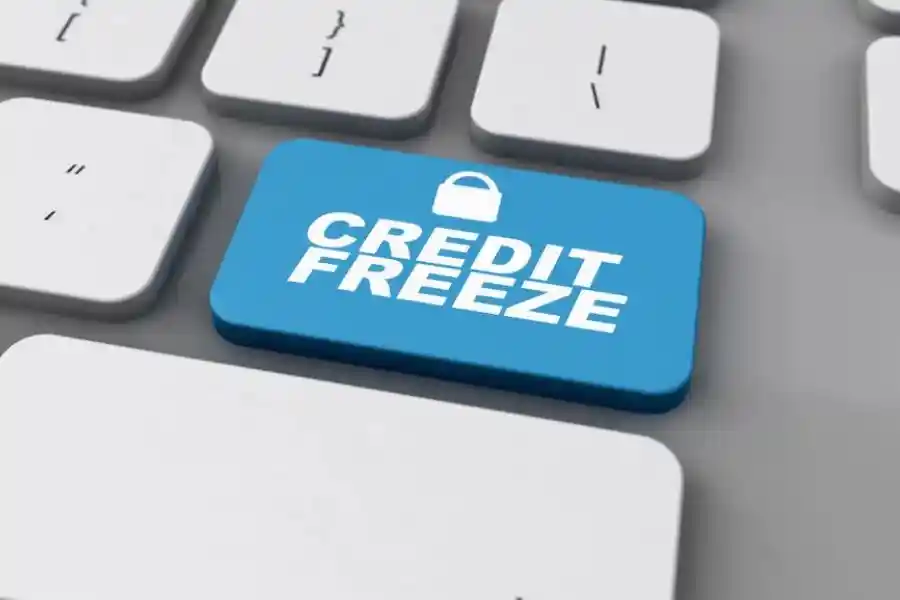As a second language learner, you power find it hard to speak up in action-oriented business discussions or find yourself struggling with the slang language, and lingoes of your industry. With individuality theft and data violations becoming increasingly common, freezing your credit is an effective way to save your finances.
This guide offers clear, step-by-step education for freezing your credit with each of the three big players—Experian, Equifax, and TransUnion—along with top tips, FAQs for provoking questions, and vital stats to keep you in the know and safe.
Key Takeaways:
- A credit freeze prevents unauthorized access to your credit report.
- Contact all three credit bureaus to ensure comprehensive protection.
- Freezing your credit is free, does not affect your credit score, and is an effective tool for financial security.
What Is a Credit Freeze and Why Is It Important?
A credit freeze (or security freeze) limits who can see your credit report. It saves you from identity thieves unlocking accounts or taking loans in your name while still giving you full authority over your financial data.
Why It Matters:
- Identity Theft Prevention: A credit freeze prevents creditors from accessing your credit report unless you lift the freeze temporarily.
- Peace of Mind: Even if someone breaks into your data, a credit freeze provides another level of protection.
Key Statistics:
- Identity theft affected over 1.4 million cases in 2022 (source: FTC.gov).
- On average, identity theft victims dedicate 7 hours to resolving fraud issues (source: Javelin Strategy).
Advantages of Freezing Your Credit:
- Defended Against Fraudulent Activity: Prevents any components from being raised in your name without your knowledge.
- No Effect on Credit Score: Freezing your credit won’t have any impact on your existing accounts or credit history.
- Free of Charge: You won’t pay anything to freeze and unfreeze credit, due to U.S. law.
How Does a Credit Freeze Work?
When you freeze your credit, lenders, landlords, and other commodities cannot access your credit information without your permission. This effectively blocks criminals from using stolen personal information to:
- Open credit cards or loans fraudulently.
- Sign up for services or accounts in your name.
Quick Facts:
- Freezing your credit does not prevent you from using existing accounts.
- You can continue to check your credit report even while it is frozen.
Steps to Freeze Your Credit with All Three Bureaus
To fully protect your credit, you need to contact Experian, Equifax, and TransUnion separately. Here’s how:
Step 1: Gather Required Information
Before starting, ensure you have the following:
- Full name and date of birth
- Social Security number (SSN)
- Address history
- Proof of identity (e.g., driver’s license, utility bill)
Step 2: Contact Each Bureau
- Experian
- Website: www.experian.com/freeze
- Phone: 1-888-397-3742
- Equifax
- Website: www.equifax.com/personal/credit-report-services/
- Phone: 1-800-349-9960
- TransUnion
- Website: www.transunion.com/credit-freeze
- Phone: 1-888-909-8872
Step 3: Set a Unique PIN or Password
Each bureau allows you to create a unique PIN or password to manage your freeze. Store this information securely.
Step 4: Confirm Freeze
You will receive confirmation from each bureau. Keep these details safe, as you will need them to lift or remove the freeze.
Pros and Cons of Freezing Your Credit
Pros:
- Strong Identity Protection: Prevents unauthorized credit inquiries.
- Free and Easy: Federal law ensures credit freezes cost nothing and are simple to manage.
- Control Over Access: You decide when and how to lift the freeze.
Cons:
- Delayed Applications: Freezes must be lifted temporarily if you apply for credit.
- Doesn’t Protect Existing Accounts: Fraudulent activity on your current accounts is not covered.
Alternatives to Credit Freezes
If a credit freeze doesn’t fit your needs, consider these options:
Fraud Alerts
- Alerts creditors to verify your identity before opening accounts.
- Free and lasts one year (extendable for identity theft victims).
Credit Monitoring Services
- Provides real-time alerts for suspicious activity.
- Examples: IdentityGuard, LifeLock.
Credit Locks
- Similar to a freeze but managed through an app for easier access.
Common Misconceptions About Credit Freezes
- Will Freezing My Credit Affect My Score? No, a freeze does not impact your credit score or history.
- Can Employers or Landlords Access My Report? No, a freeze blocks access unless you lift it temporarily.
- Does a Freeze Stop All Fraud? No, it only blocks new accounts. Existing accounts remain vulnerable.
Tips for Managing a Credit Freeze Effectively
- Protect Your PIN: Keep your PIN or password in a safe place, like a password manager.
- Look at Your Credit Report: You can check for errors or fraud at AnnualCreditReport.com.
- Combine with Other Tools: Add a layer of security with fraud alerts or credit monitoring.
FAQs About Freezing Your Credit
How do I put a freeze on all three credit bureaus?
Unlike in some countries, the freeze isn’t universal; to freeze your credit with all three credit bureaus (Equifax, Experian , and TransUnion), you have to contact each bureau separately. You can complete this step online, over the phone , or by mail. You’ll have to submit personal information, like your Social Security number and proof of identity.
Is freezing credit a good idea?
If you suspect identity theft or want to help prevent unauthorized access to your credit, freezing your credit is a good idea. This can help stop fraud, as it will alert lenders not to pull your credit report without your permission.
Can I credit freeze my account?
Yes, you can lock it as much as you want by contacting the credit bureaus. Freezing your credit is free, and only takes a short amount of time, but it won’t close any of your existing accounts or stop the effects an opened account will have on your credit score.
How do I freeze my credit phone number?
If you want to freeze your credit over the phone, you can call the credit bureaus at their separate numbers provided for credit freeze requests. Be ready to provide someone to answer a series of identity verification questions.
Conclusion
A credit freeze is an action you can take to protect your finances. By calling the three credit bureaus — Experian, Equifax , and TransUnion — and placing a freeze on your credit, you virtually eliminate your chances of becoming an identity theft victim. So do it before it’s too late — reply today for the sake of your financial security.
Are you wondering about freezing your credit? Share in the comments below your ideas or experiences and read our other blogs for more money-in-pocket strategies!

